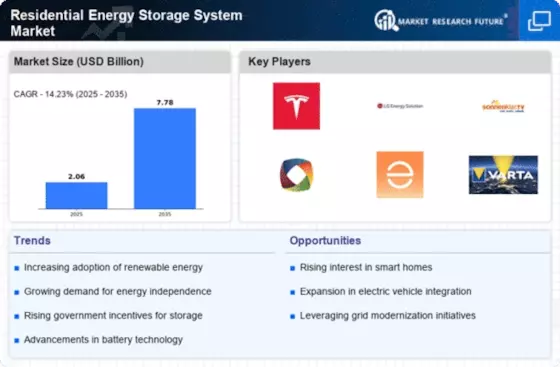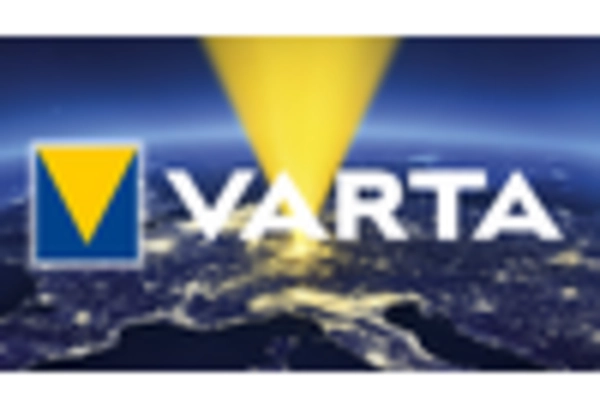Market Analysis
In-depth Analysis of Europe Residential Energy Storage System Market Industry Landscape
The residential energy storage system market in Europe is experiencing dynamic shifts driven by several factors. Firstly, the increasing emphasis on renewable energy sources, such as solar and wind, has propelled the demand for energy storage solutions among homeowners. With the growing awareness of environmental sustainability and the need to reduce carbon emissions, many households are investing in residential energy storage systems to store excess energy generated from renewables for later use, thereby reducing dependence on traditional energy sources.
Moreover, government policies and incentives play a significant role in shaping the market dynamics of residential energy storage systems in Europe. Subsidies, tax credits, and feed-in tariffs provided by various European countries encourage homeowners to adopt energy storage solutions, making them more financially viable and attractive. Additionally, regulations promoting energy efficiency and grid resilience further drive the adoption of residential energy storage systems, as they enable consumers to optimize their energy usage and contribute to overall grid stability.
Another factor influencing the market dynamics is technological advancements in energy storage technologies. Innovations in battery storage systems, such as lithium-ion batteries, have led to improvements in efficiency, performance, and cost-effectiveness, making residential energy storage systems more accessible to a wider range of consumers. Furthermore, the integration of smart technologies and energy management systems allows homeowners to monitor and control their energy consumption, maximizing the benefits of their energy storage systems.
The competitive landscape of the Europe residential energy storage system market is characterized by the presence of both established players and emerging startups. Key players in the market are continually investing in research and development to enhance their product offerings and gain a competitive edge. Moreover, partnerships and collaborations between energy storage providers, utilities, and technology companies are becoming increasingly common, driving innovation and expanding market reach.
Consumer preferences and behavior also influence market dynamics, with factors such as cost, reliability, and ease of installation playing significant roles in purchasing decisions. As the residential energy storage market matures, consumers are becoming more discerning and demanding, seeking solutions that not only meet their energy needs but also provide long-term value and peace of mind.
Furthermore, the COVID-19 pandemic has had both short-term and long-term impacts on the Europe residential energy storage system market. While the initial disruptions in supply chains and project installations caused setbacks, the pandemic has also accelerated certain trends, such as remote work and digitalization, which have increased the demand for residential energy storage solutions.
Looking ahead, the Europe residential energy storage system market is expected to continue its growth trajectory, driven by ongoing advancements in technology, supportive government policies, and evolving consumer preferences. However, challenges such as regulatory uncertainties, grid integration issues, and competition from other energy storage options remain, highlighting the need for stakeholders to collaborate and innovate to address these challenges and unlock the full potential of residential energy storage systems in Europe.



















Leave a Comment